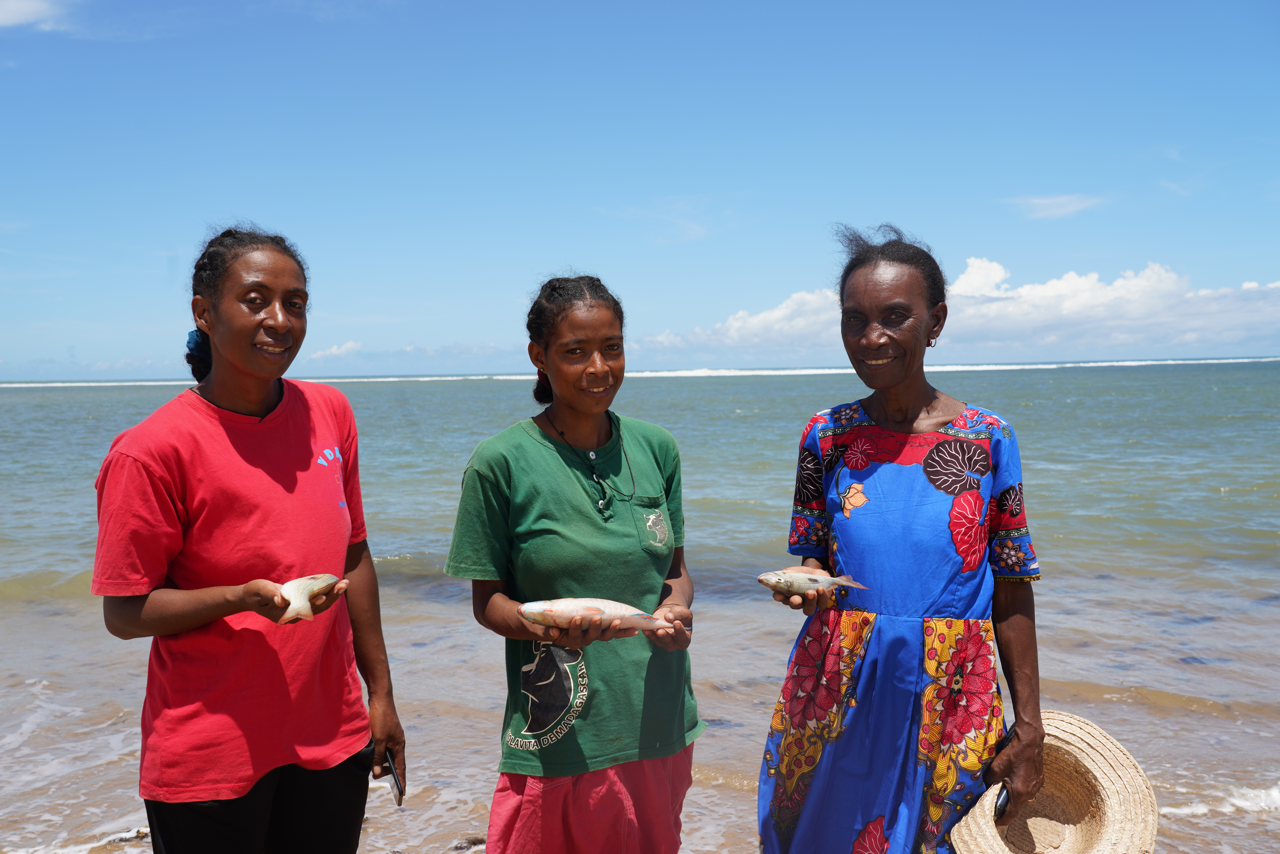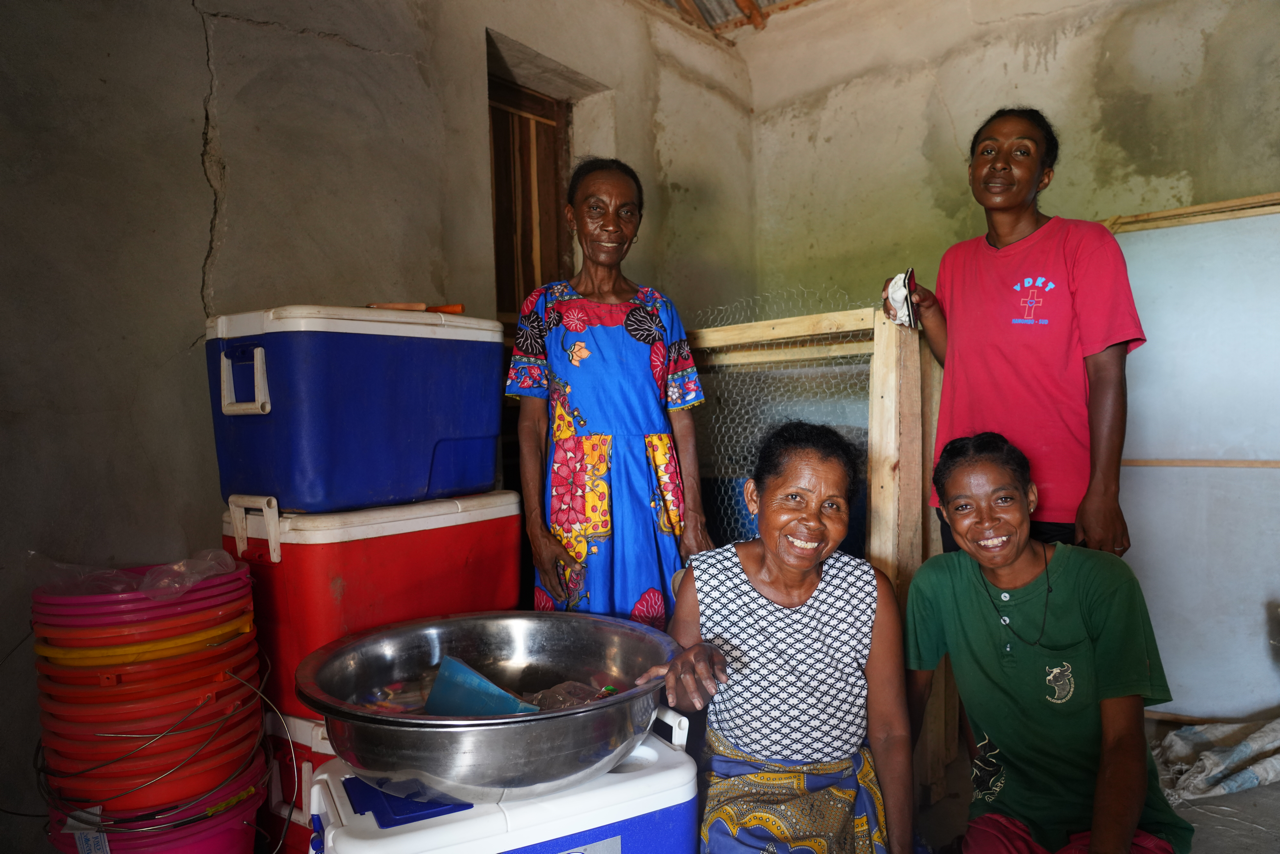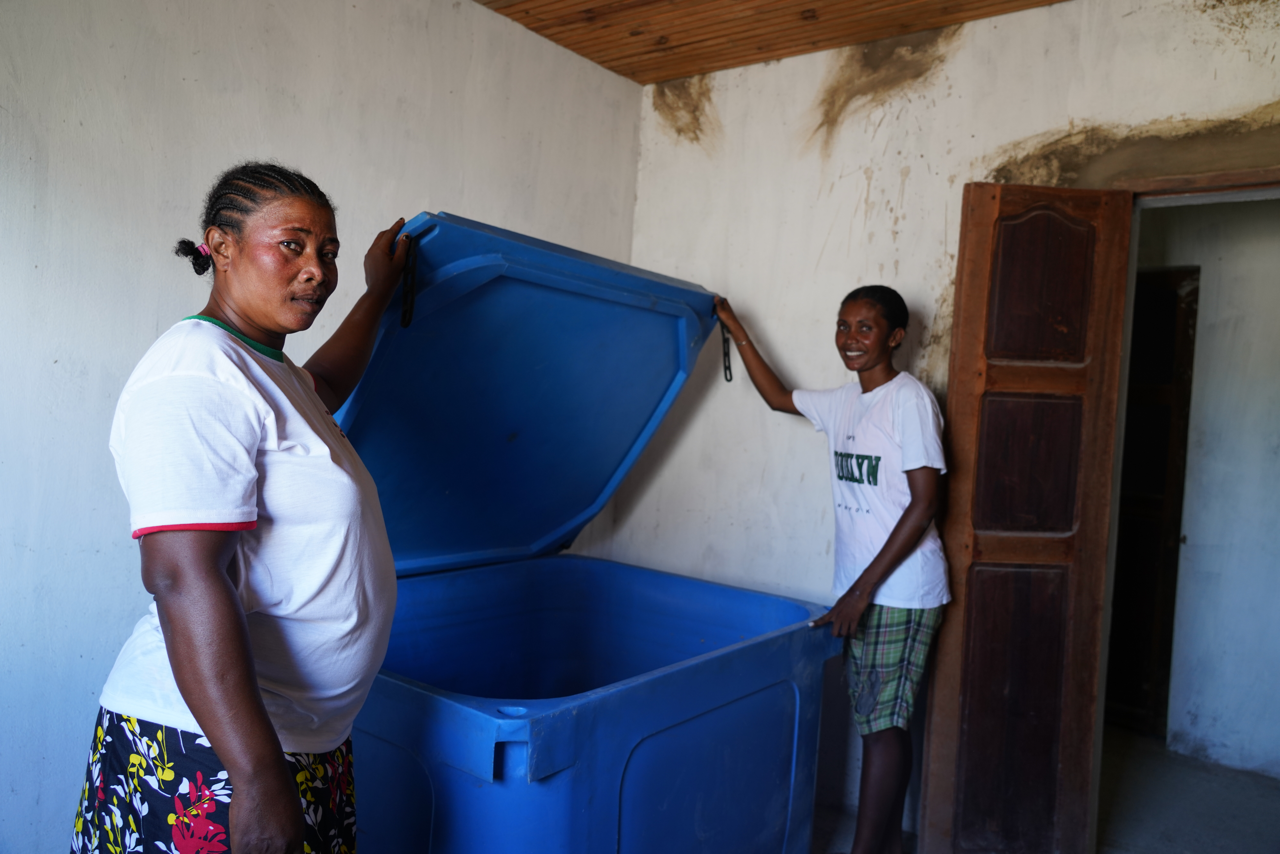Fishing for opportunities
How women in small villages in Madagascar are coming together to improve their livelihoods

©FAO/Arielle Ndimbiarivola
In Ifaty, a small tourist village near Toliara in Madagascar, a group of determined women has taken control of their future. Their story is one of solidarity, mutual support, and hope for a better tomorrow—not just for themselves but for their entire community. The women carrying the name EZAKA, meet daily by the sea, ready to face together the challenges of the fish trading profession.
“The name of our association is EZAKA, and we have about 40 members. As women, our goal is to help our community evolve. Our main activity is fishmongering, and that’s why we chose the name Ezaka, which means ‘Effort’—because it takes effort to build sustainable solutions for a better future,” explains Céline, a proud member of the association.
EZAKA is affiliated with the National Network of Women in Fisheries in Madagascar (RENAFEP - Réseau National des Femmes de la Pêche à Madagascar), which has been working alongside FAO since 2023 to improve the livelihoods of women in post-harvest fisheries. This partnership aligns with Madagascar’s National Plan of Action for Small-Scale Fisheries (NPOA-SSF), which emphasizes empowering women in fisheries, improving post-harvest techniques, and strengthening market access.
Creating gender-equitable and climate-resilient communities
Under phase two of the project “Implementing the Small-Scale Fisheries Guidelines for gender-equitable and climate-resilient food systems and livelihoods”, in support of the Voluntary Guidelines For Securing Sustainable Small-Scale Fisheries (SSF Guidelines) funded under FAO’s Flexible Voluntary Contribution (FVC), trainings have been conducted to improve the quality of the products, support women’s associative capacities and provide the necessary equipment. This phase builds on the successes of previous initiatives, such as Creating an Enabling Environment for Securing Sustainable Small-Scale Fisheries, which provided essential post-harvest equipment.

Women in Manombo pose with the equipment distributed by the project. Photo: FAO/Arielle Ndimbiarivola
Now, the focus has shifted to enhancing business skills, improving fish processing techniques, and boosting incomes. Women are receiving training in quality control, market strategies, and the efficient use of storage equipment, such as coolers and isothermal boxes. These resources, initially provided under earlier FAO projects, are now being used more effectively to ensure better product preservation and reduce post-harvest losses.
One of the key improvements has been the introduction of fish drying techniques. “Before, when the weather was bad, we would lose a significant amount of fish because we couldn’t transport them in time,” says Ravaoharisoa Emilienne, president of the RENAFEP association in Manombo and leader of the Carmelle Fokontany.
She, along with fellow fish processors Hocine and Herniette, explains the challenges they face: “The roads leading to Manombo often flood during the rainy season, making transportation nearly impossible.” Madagascar is among the countries that are most vulnerable to climate change, so the constraints women face in accessing small-scale fisheries value chains reduce their livelihood options and heighten their vulnerability to the impacts of climate change and associated shocks (FAO, 2024).
To overcome this situation, FAO provided their association with a drying oven, allowing them to preserve fish even when transport is disrupted. More trainings on improved drying techniques are planned for the upcoming months – “The women using the ovens already have better products, but there’s still room for improvements. We plan to train them further on the usage of the ovens to maximize efficiency—so they can scale up production and improve sales.” says Rindra Rasoloniriana, Fisheries Specialist working on the project in Madagascar.
An icy solution
Another important intervention of the project is the ice-making machine that will be provided to RENAFEP in the city of Tulear. This way, women can take the coolers filles with aquatic foods to sells in the market and return home with them filled with ice. They can keep them on the isothermal boxes provided, sell to smaller villages extending the reach of fresh fish to more remote communities.

“We are eagerly awaiting the arrival of the ice-making machine in Toliara,” says Alphonsine, a member of EZAKA. “It will be a game-changer for us.” Photo: FAO/Arielle Ndimbiarivola.
RENAFEP in Tulear works as a hub linking the fish-workers from the many surrounding villages. With improved preservation methods and better market coordination, women are aiming to expand their customer base, secure higher prices, and even explore export opportunities, for example to Comoros.
Agents of Change
These women are more than fish traders. They are entrepreneurs, community leaders, and agents of sustainable development. Through solidarity, innovation, and determination, they are transforming the fisheries sector—one cooler, one drying oven, and one business opportunity at a time.
By aligning with FAO initiatives and the National Plan of Action for Small-Scale Fisheries, they are building a more resilient, equitable, and prosperous future for their families and generations to come.
Learn more:
- SSF Guidelines website
- Implementing the Small-Scale Fisheries Guidelines for gender-equitable and climate-resilient food systems and livelihoods – phase 2 project page
- SSF Guidelines country page: Madagascar
- NPOA-SSF in Madagascar
- Contribution des femmes du secteur de la petite pêche aux moyens de subsistance des communautés et à la sécurité nutritionnelle à Madagascar
